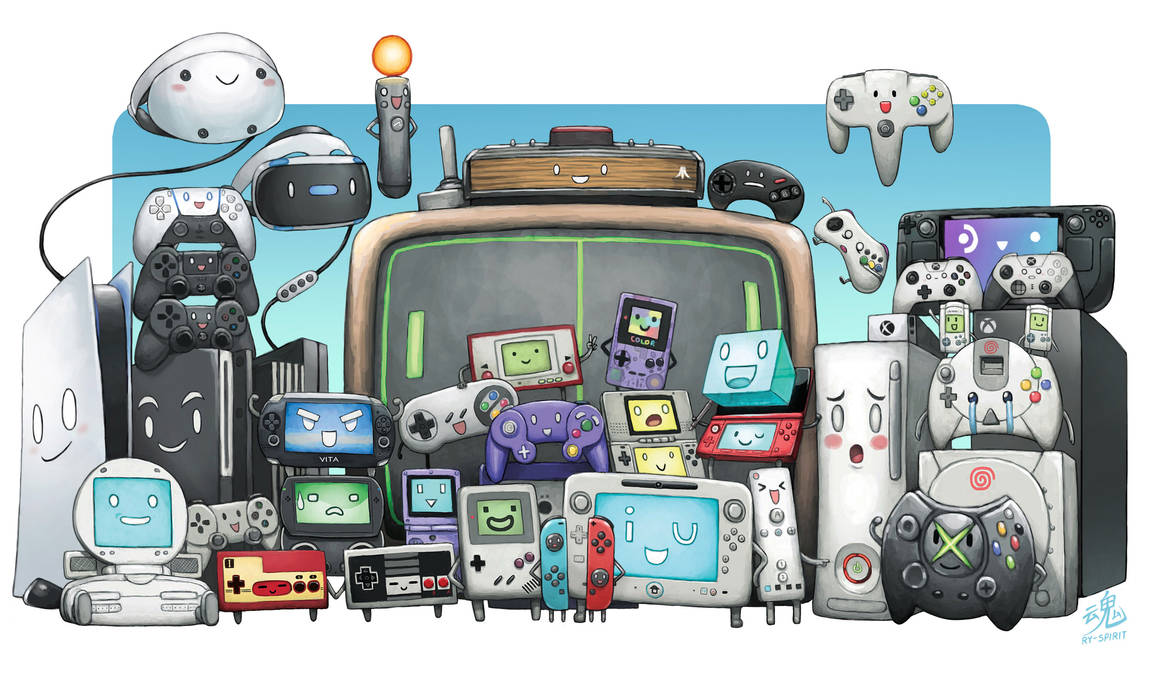The video game industry is one of the fastest-evolving sectors in entertainment, and over the past 20 years, it has undergone a transformation that has reshaped how games are developed, played, and perceived. From technological advancements to shifts in business models, the changes have been profound. Here’s a look at how the industry has evolved over the last two decades.
The Rise of Digital Distribution
Two decades ago, purchasing a game meant heading to a store, navigating the physical aisles, and picking up a boxed copy. Today, digital distribution has revolutionized this process. Platforms like Steam, the PlayStation Store, Xbox Live, and the Nintendo eShop allow players to download games directly to their consoles or PCs. This shift has made games more accessible and has enabled developers to reach global audiences without the logistical challenges of physical distribution. Additionally, digital distribution has given rise to “digital-only” games and downloadable content (DLC), expanding the lifecycle of games beyond their initial release.
The Dominance of Mobile Gaming
In the early 2000s, mobile phones were primarily communication devices with limited gaming capabilities. Fast forward to today, and mobile gaming is a colossal segment of the industry. The introduction of smartphones with advanced processors and touchscreens, along with app stores like Apple’s App Store and Google Play, has democratized game development. Casual games like Candy Crush Saga and Among Us have reached massive audiences, showing that high-quality gaming experiences are not confined to traditional consoles or PCs.
The Explosion of Online and Multiplayer Gaming
The early 2000s saw the advent of online gaming with titles like Halo 2 and World of Warcraft, but the past two decades have witnessed an explosion in multiplayer and online interactions. Games like Fortnite, Call of Duty: Warzone, and Apex Legends have popularized the battle royale genre and esports, turning gaming into a social activity and a spectator sport. The rise of streaming platforms such as Twitch and YouTube Gaming has further propelled this trend, allowing gamers to broadcast their play and interact with audiences worldwide.
Advances in Graphics and Technology
Graphics technology has seen remarkable advancements. In 2004, games like Half-Life 2 showcased the impressive capabilities of that era’s hardware, but today’s games push the boundaries even further. Modern consoles like the PlayStation 5 and Xbox Series X feature stunning graphics and real-time ray tracing, creating more immersive and realistic experiences. PC gaming has similarly advanced, with high-end graphics cards and support for 4K resolution and beyond. The development of new technologies such as virtual reality (VR) and augmented reality (AR) is also setting the stage for future innovations.
The Emergence of Indie Games
The early 2000s were dominated by big-budget games from major studios, but the landscape has dramatically shifted with the rise of indie games. Titles like Minecraft, Stardew Valley, and Hades have shown that smaller developers can create compelling and successful games without the need for enormous budgets. Platforms like Steam and itch.io have made it easier for indie developers to distribute their games, fostering a diverse range of experiences and pushing the boundaries of traditional game design.
Changes in Monetization and Business Models
The way games are monetized has also evolved. The traditional model of buying a game for a one-time fee has been supplemented by various new approaches. Microtransactions, season passes, and subscription models have become commonplace, allowing players to access additional content or features for an extra cost. Free-to-play games with in-game purchases have gained popularity, making high-quality games accessible without an upfront cost but generating revenue through optional spending.
Increased Focus on Diversity and Inclusion
The video game industry has become more inclusive and diverse over the past 20 years. There is a growing emphasis on representing different cultures, identities, and experiences in games. Developers are increasingly addressing social issues and creating characters and narratives that reflect a broader spectrum of society. This shift is not only enriching the gaming experience but also contributing to a more inclusive industry environment.
The Role of Gaming Communities
The past two decades have seen a significant rise in the importance of gaming communities. Online forums, social media, and fan sites have become vital in shaping the gaming landscape. Communities now play a crucial role in influencing game development, providing feedback, and fostering a sense of belonging among players. Events like conventions, fan meetups, and online gatherings have strengthened these communities, turning gaming into a more collaborative and social experience.
The video game industry has transformed dramatically over the past 20 years, driven by technological advancements, changes in consumer behavior, and shifts in business models. As we look to the future, it’s clear that the evolution will continue, with emerging technologies and new trends shaping the way we play and experience games. One thing remains constant: the passion and creativity that fuel the industry, making gaming an ever-evolving and exciting field.
Whether you’re a longtime gamer or new to the scene, it’s an exciting time to be part of this dynamic world. The next 20 years promise even more innovation and change, and it will be fascinating to see where the industry goes from here.

